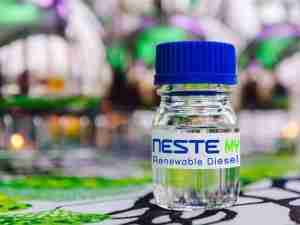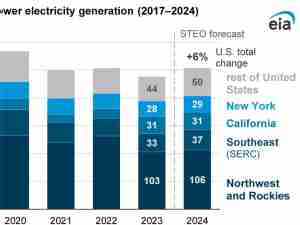Long range products tanker rates keep gains for now
By: Reuters | Aug 08 2014 at 06:50 AM
Long-range clean tanker rates remained firm this week although a likely slowdown in bookings was expected to cap the pace of gains in coming days.
Larger Long-Range 2 or LR2, 75,000 tonne shipments on the Middle East Gulf to Japan route were at W114.72 or $20,445 a day on Thursday, the latest Baltic Exchange data showed.
That compared with W114.72 or $20,012 a day on Wednesday and W114.95 or $20,386 a day last Thursday.
“Rates for the biggest clean tankers heading to Japan from the Middle East have clung on to the W115.0 level all week,” broker Braemar ACM said.
“At the start of the week, owners were clinging on to the recent wave of improved sentiment, but as the market focus moves to September, a gradual decline in enquiry and a build-up of available tonnage started to put pressure on levels.”
Long-Range 1 tankers, carrying 55,000 tonne loads from the Middle East Gulf to Japan, reached W123.15 in the Worldscale measure, or $13,180 a day when translated into average earnings and were at their highest since mid-June of this year.
That compared with W121.90 or $12,341 a day on Wednesday and W117.05 or $10,950 a day last Thursday.
Rates for medium-range (MR) tankers for 37,000 tonne cargoes on the TC2 route from Rotterdam to New York were W93.86, or $2,183 a day.
That compared with W88.18 or $814 a day on Wednesday and W94.38 or negative at -$803 last Thursday.
Brokers said there was support for transatlantic rates at present with scope for further gains.
“Given the fact that Europe is still in dire need of diesel we see the situation as potentially positive for product tankers in the event that European buyers end up sourcing barrels from more distant exporters,” said Arctic Securities analyst Erik Nikolai Stavseth.
In January, earnings reached their highest level since early August last year.
Rates for MR tankers on the U.S. Gulf to Europe route were at W88.21 or $1,489 a day. That compared with W87.86 or $1,274 a day on Wednesday and W97.86 or $3,467 a day last Thursday.
Average earnings per day are calculated after a vessel covers its voyage costs such as bunker fuel and port fees.









